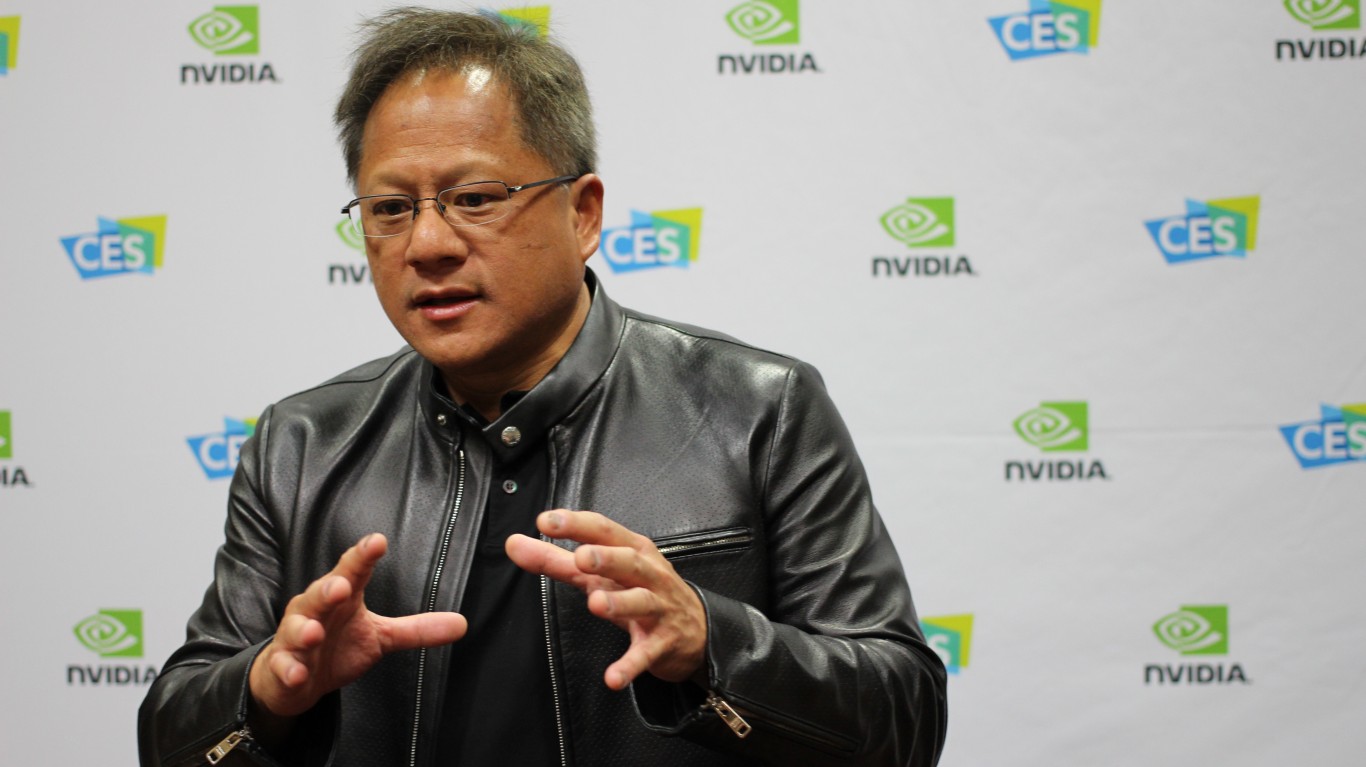
"Shares of Nvidia Corp. ( NASDAQ: NVDA) are up 6.1% over the past 90 days, and it recently reached a $5 trillion valuation. CEO Jensen Huang announced the company has secured more than $500 billion in orders for its next-generation Blackwell and Rubin AI chips, and the chipmaker announced collaborations with Deutsche Telekom and Hyundai Motor. Yet, Softbank has sold its entire stake in Nvidia. The chipmaker's stock is 65.6% higher than six months ago, easily outperforming the S&P 500 and Nasdaq in that time."
"Note that recent gains for the chipmaker helped wipe away the steep drop the stock suffered early in 2025, after it reported it would take a $5.5 billion charge tied to H20 chip export restrictions to China. While some analysts have raised price targets, others caution about ongoing headwinds due to uncertainty surrounding future U.S.-China trade relations and the potential for stricter regulations. The second-quarter report was stellar on the top and bottom lines, but its guidance fell short of high expectations."
"Nvidia faces significant hurdles as it navigates U.S.-China trade restrictions and intense market expectations. In the first quarter, export controls on its H20 AI chip-which had been designed specifically to circumvent export restrictions on advanced technology to China-led to the substantial write-down noted above. Analysts believed the ban could result in a $9 billion revenue hit. Some $700 million would affect fiscal first-quarter results, with the remaining $8 billion spread across the second and third quarters."
Nvidia reached a $5 trillion valuation and reported substantial demand for next-generation Blackwell and Rubin AI chips, securing more than $500 billion in orders and forging partnerships with Deutsche Telekom and Hyundai Motor. The stock is 65.6% higher than six months ago and up 6.1% over the past 90 days, despite Softbank selling its entire stake. The company took a $5.5 billion charge tied to H20 chip export restrictions to China; analysts estimate a potential $9 billion revenue impact, with $700 million in fiscal Q1 and $8 billion across Q2 and Q3. Q2 showed strong top- and bottom-line results but guidance disappointed, and the company is shifting toward U.S. AI infrastructure investments amid concerns over U.S.-China trade relations, potential stricter regulations, tariffs, and higher supply-chain costs. The next report is scheduled for November 19.
Read at 24/7 Wall St.
Unable to calculate read time
Collection
[
|
...
]